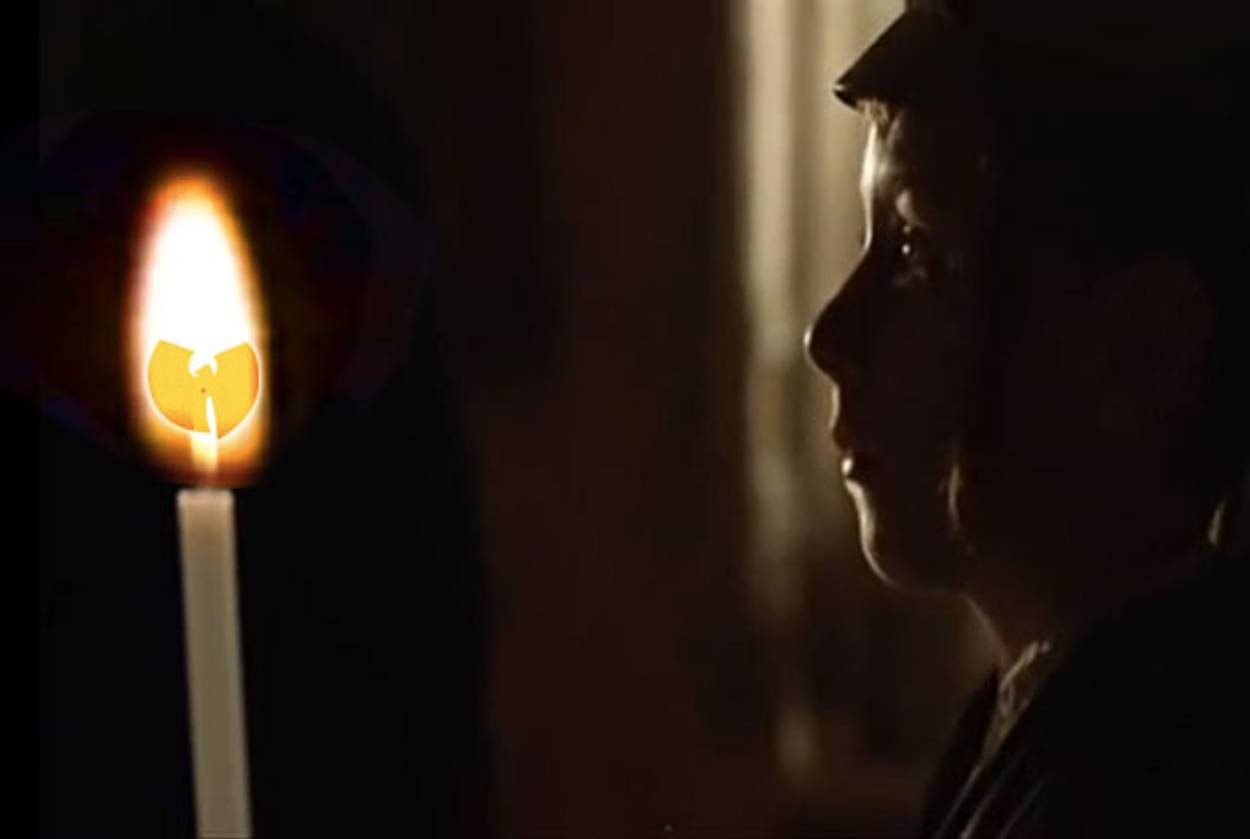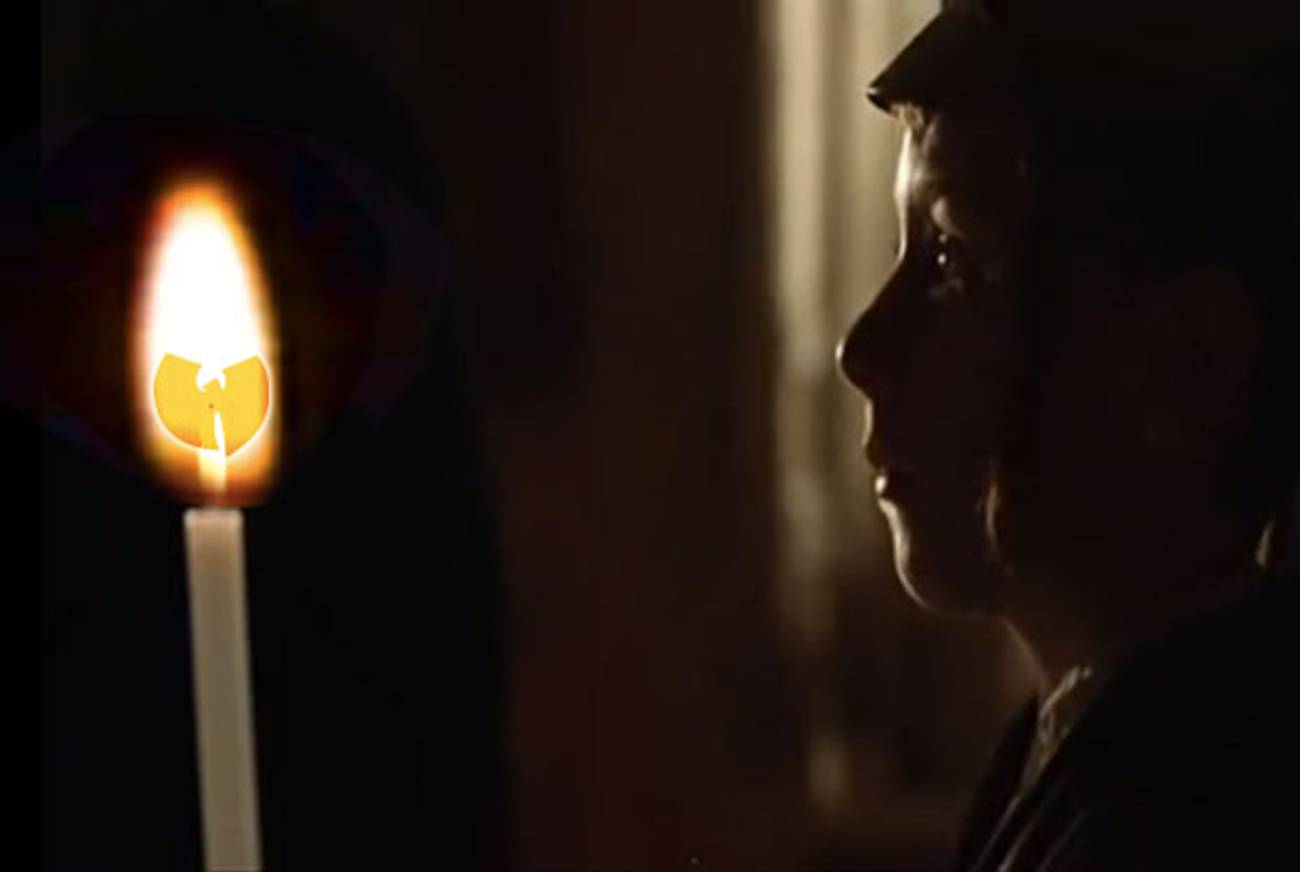Wu-Tang’s Kiddush
My family Kiddush became the haunting opening for Schindler’s List, and was sampled by the hip-hop collective




With the recent release of the 20th-anniversary edition of Schindler’s List, my family has been circulating emails discussing my grandfather’s “Kiddush heard around the world.” For most people who watch Spielberg’s emotionally charged film, the opening scene of the Kiddush being recited with Shabbat candles burning in the background functions as a somber memorial to a vanished world. However, for our family, that scene is one of the most meaningful ways we memorialize my late grandfather, a Holocaust survivor named Emil Katz, whose familiar Friday-night family Kiddush led to a series of unlikely encounters involving Steven Spielberg, the Wu Tang Clan, and two-time Academy Award-winner Rabbi Marvin Hier.
Emil was born in 1917 in Nyíracsád, a small town approximately 35 km northeast of Debrecen in eastern Hungary. He spent his early years learning in the local cheder and a nearby yeshiva before he began working as a printer. In 1939, he was drafted into the Hungarian Labor Battalion, a branch of the Hungarian Army reserved for Jewish men to perform dangerous tasks for the Nazi army, like clearing minefields on the Russian front. Surviving this ordeal because of his assignment to a regional army bakery, he avoided deportation in May of 1944 to Auschwitz, where the majority of his large extended family were murdered. Upon liberation by the Russian Army, Emil found and married Eva Gelberger, a distant relative who survived the camps. After living in a DP Camp in Austria for a few years, they ultimately settled in Los Angeles, where Emil worked as a bookbinder and raised my father and his two siblings. He remained an observant Jew, an active participant in local synagogue life and a lay cantor who led High Holiday services. In 1993, Emil was a still-vigorous 76 years old, serving as gabbai of the 6 a.m. daily minyan at Beth Jacob of Beverly Hills, helping run the shul’s gift shop, volunteering at Cedars-Sinai Medical Center, and finding time to indulge in baking, his favorite pastime.
That year, as the Dec. 15 opening date of Schindler’s List was fast approaching, Rabbi Marvin Hier was asked to attend an early screening of the movie and registered a major critique of the opening scene of a match being struck to light the Shabbat candles as the Friday night Sabbath Kiddush is recited by the elderly father. Rabbi Hier noticed that the voice reciting the Kiddush used a modern Hebrew pronunciation common in contemporary Israel—a far cry from the diction of Eastern Europeans in the early 1940s. Hier told Spielberg that in order to avoid an obvious anachronism, an accurate-sounding cantor was needed for the opening scene.
Spielberg protested that it would be impossible to find such a person with the film about to open, but Hier stood firm. He immediately coordinated a tryout for three Holocaust survivors in the community known for their cantorial skills. Emil had a beautiful voice and had served as a chazzan for the High Holidays for various shuls in the Los Angeles area in the 1950s and ’60s, and continued to lead the Erev Rosh Hashanah Slichos until the end of his life. He lived a few short blocks from Rabbi Hier; the two had been friendly for years. A limousine shuttled the group of three to a soundstage in Hollywood for the audition, and Emil’s melodic Kiddush was chosen for its simple authenticity. He received a modest check for his Kiddush and was ecstatic to have been selected. The following Shabbat he paused before reciting Kiddush at home, sheepishly looking around the table and saying: “What?! I should do it now for free?”
My father accompanied my grandfather to a screening hosted by Universal Pictures, and they were amazed when they heard his Kiddush in the opening scene. The movie of course went on to win seven Academy Awards, and I always made sure to remind people of my grandfather’s role in it.
***
All was quiet for the next few years until a close family friend excitedly called up my father and asked him if he had heard the new Wu-Tang Clan & Wu-Tang Killa Bees CD, The Swarm. My father, while relatively well-versed in pop culture, had never heard of Wu-Tang Clan and was perplexed when he first heard the song on the album titled “Never Again.” The haunting rap song, written and performed by Remedy (a Staten Island Jew named Ross Filler), tells the story of the Holocaust and calls for the Jews to “never again” be subject to such cruel atrocities. What prompted this phone call was that the song begins with Emil’s Kiddush, which had been sampled from Schindler’ s List.
Emil was both excited and annoyed when he learned that his Kiddush had been “pilfered”—perhaps it was his chance to finally strike it big. His first stop was an entertainment lawyer, a fellow attendee of the 6 a.m. daily minyan at Beth Jacob. The lawyer was skeptical that my grandfather retained any rights to the Kiddush, as he had provided a contract service for Universal Pictures and had not negotiated any conditions regarding how it could be used. The lawyer sent Universal Pictures a letter asking if they wanted to pursue a case against Wu-Tang for using the Kiddush, but they declined. The lawyer then consulted a record industry litigator who actually thought Emil had a decent case. But between the high costs of the retainer and ongoing legal fees, no guarantee of success, and the prospect of an 81-year-old man starting a multiyear road of litigation, my family urged him not to pursue the case.
My grandfather relented, but he never ceased bringing up this “missed opportunity” to cash-in. Eventually, my father actually reached out to Remedy to figure out the motivation behind the rapper’s lifting of Emil’s Kiddush. It turned out that Remedy’s grandfather was a Holocaust survivor, and the song was a tribute to his murdered relatives, a fitting accompaniment in every way to Schindler’s List.
Emil passed away in the summer of 2005 at the age of 88. He maintained his demanding schedule until the end of his life, including baking the most delicious challah every Shabbat eve for his family. He left behind an enormous legacy for his family and community—a legacy that, credited or not, continues to touch people of all races and creeds throughout the world.
***
Like this article? Sign up for our Daily Digest to get Tablet Magazine’s new content in your inbox each morning.
Aaron R. Katz is an associate in the corporate and securities practice at Greenberg Traurig. He lives with his wife and three children in Israel.
Aaron R. Katz is an associate in the corporate and securities practice at Greenberg Traurig. He lives with his wife and three children in Israel.